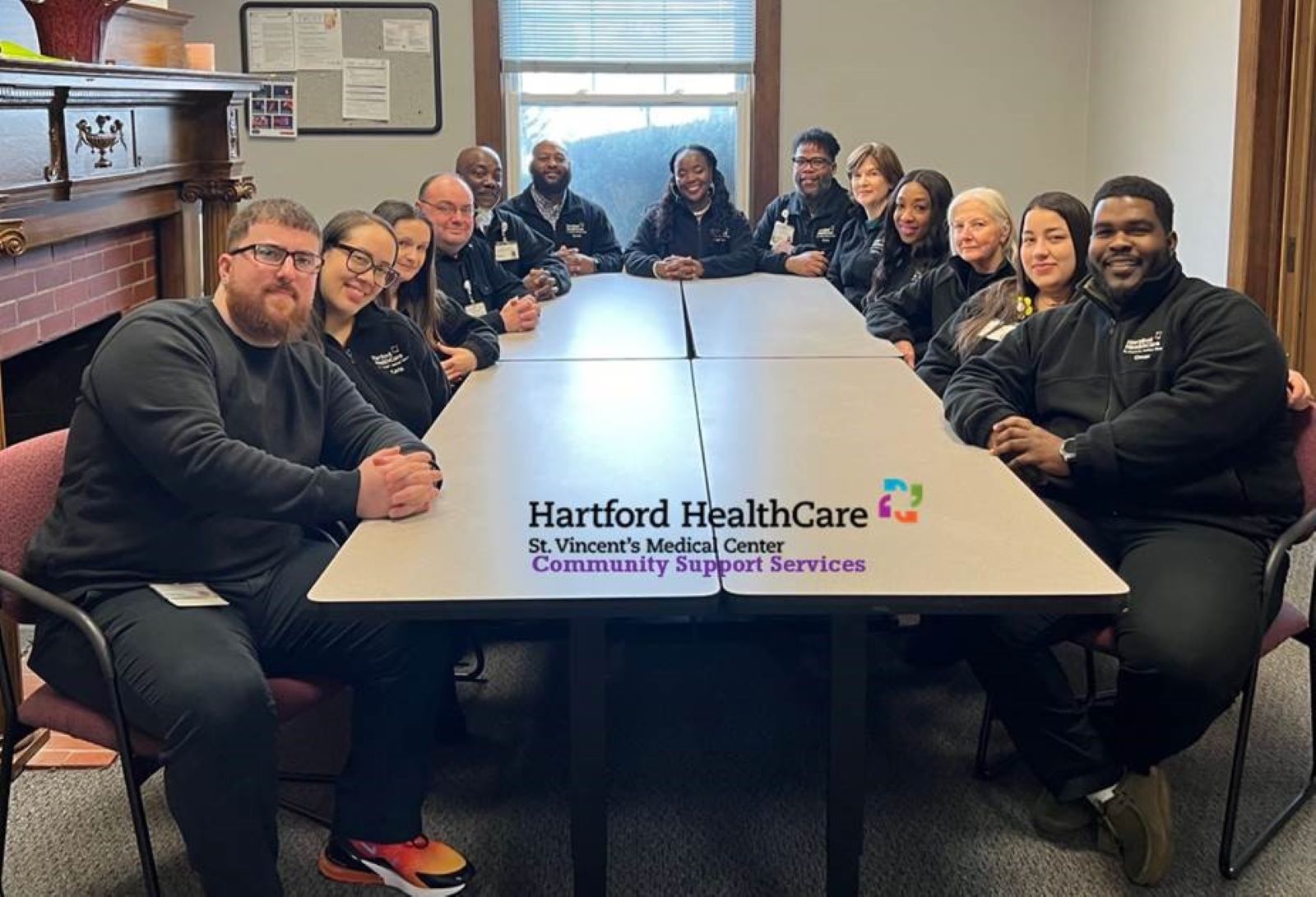<< Back
BHN’s Community Support Services: ‘We Don’t Have Office Hours’

February 22, 2024
Mental health care doesn’t stop when the appointment ends.
For those who live with severe persistent mental illness, the challenges to their health live outside their doctor’s office. That’s why Hartford HealthCare’s Behavioral Health Network has a Community Support Services (CSS) department.
Because social issues – housing or food insecurity, economic instability, access to quality healthcare, unsafe environments and lack of support – can wreak havoc on a patient’s mental health, the team provides community support services, such as case management, housing support and community integration.
“We service the whole person,” says Tonisha Cohen-King, manager of community support services. “Whether they need support securing food, medication, a place to live, keeping their lights on, or a warm coat, our goal is to provide the support and resources they need to enhance their quality of life.”
Housing supports large piece of puzzle
Perhaps the most important element of the community support services is the permanent supported housing, says Cohen-King. CSS operates under the Housing First model that gives anyone experiencing homelessness immediate access to permanent housing.
The program, operating since 1988 and funded through the federal government, accommodates about 140 people, individuals and single parents with children. Referrals come from the state and Connecticut’s Coordinated Access Network.
HHC holds leases to apartments throughout greater Bridgeport/Norwalk, and participants have a case manager. Much of the housing is individual apartments, but Cohen-King says there is some congregate living which helps “individuals who may not have the economic stability to pay rent and utilities.”
The front-line staff — seven case managers and two counselors — are the program’s critical component, as they provide hands-on support and advocacy to ensure residential stability, benefits, access to treatment, community resources and crisis intervention. The person-centered treatment plan also includes skill-building.
“You can’t just give someone an apartment key and all the problems go away,” Cohen-King says. “They get the housing, and that’s just a small piece of what we do. With a safe and affordable place to live, they can now focus, with our support, on other ways to improve their lives, such as gaining employment, going back to school, reconnecting with family, friends and community. Now they can focus on recovery, as opposed to just being in survivor mode.”
Understanding in crisis
Crisis intervention often comes into play and the CSS team works with local police departments to de-escalate situations. The program maintains a resident emergency line to dispatch a crisis team around the clock.
“We want to be the first to assess a situation,” Cohen-King explains. “There are times we may call 911 and/or mobile crisis to meet us on the scene, but we know our clients and we want a chance to de-escalate.”
The willingness of police to add social workers to their own staff in recent years has also helped the situation, she notes.
“They might get calls from certain residents that they know are ours, and will call us. This gives us a chance to collaborate in the moment and come up with a safety plan that benefits the individual and community as a whole.”